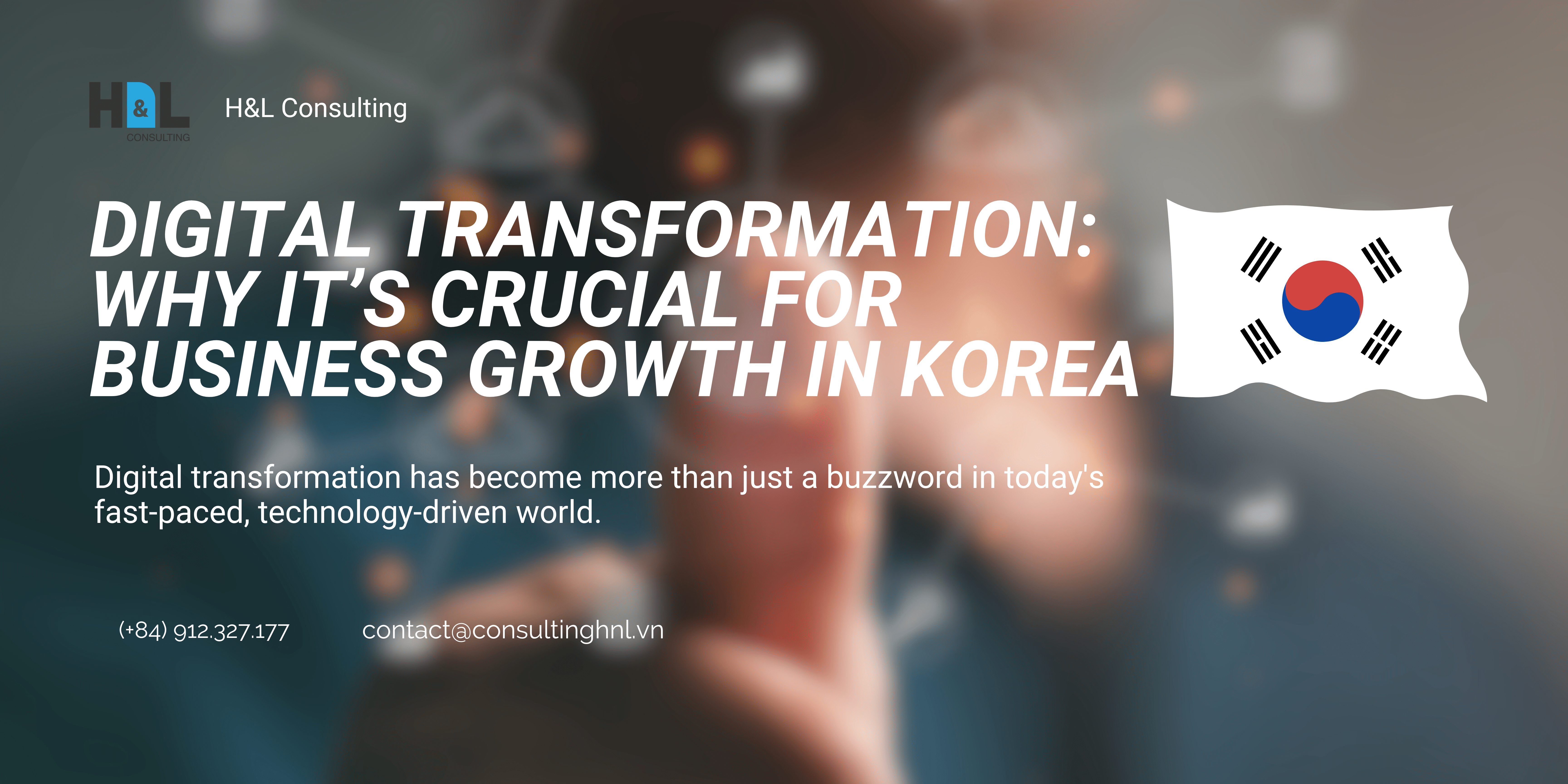Digital transformation has become more than just a buzzword in today’s fast-paced, technology-driven world. 71% of questioned firms feel that Digital Transformation leads to higher revenue, while 62% say it enhances planning and decision-making. Korean businesses need to adopt digital changes to continue growing, as the country is known for its technology and innovation.
Understanding Digital Transformation
Digital transformation involves the integration of digital technology into all areas of a business, fundamentally changing how you operate and deliver value to customers. Using new technology and changing how you work are both important. Trying new things and adapting quickly to customer and competitor needs are also crucial.
The Korean Business Landscape
Korea is renowned for its cutting-edge technology and innovation. Companies like Samsung, LG, and Hyundai are global leaders in their respective fields. However, the competitive business environment in Korea means that staying ahead requires constant innovation and adaptation. Digital transformation is the key to maintaining and enhancing this competitive edge.
Why Digital Transformation Is Crucial For Business Growth In Korea
Enhancing Customer Experience
Today’s customers expect seamless, personalized, and efficient interactions with businesses. Digital transformation allows companies to leverage data analytics, AI, and machine learning to gain insights into customer behavior and preferences. Businesses can make customers happier by using information to personalize their products, services, and interactions to meet customer needs. Businesses can use digital tools to improve customer satisfaction through personalized marketing, tailored recommendations, and proactive customer service.
Driving Operational Efficiency
Digital transformation enables businesses to streamline their operations and improve efficiency. Automating tasks saves money and allows companies to focus on important projects. This is particularly important in Korea, where the competitive business environment, and operational efficiency can be a significant differentiator.
Manufacturing companies can use IoT-enabled machinery to monitor production lines, predict maintenance needs, and reduce downtime. This helps optimize the production process.
Fostering Innovation
Innovation is at the heart of digital transformation. Businesses can create new products, enter new markets, and develop new business models by using new technologies and approaches.
In Korea, businesses can stay competitive and innovative by embracing digital changes. This helps them to stay ahead of the curve in their industries. Fintech startups use blockchain for safer transactions, creating new financial products. This technology brings more security and transparency, leading to innovation in the financial industry.
Improving Decision-Making
Data is a critical asset in today’s business environment. Digital transformation allows businesses to collect, analyze, and leverage data to make more informed decisions. In Korea, quick decision-making is important. Real-time data and insights can give a big competitive edge.
Retailers can use sophisticated data analytics to predict demand, optimize inventory levels, and efficiently manage supply chains. This helps them react faster to market changes.
Enhancing Agility And Responsiveness
The business environment is constantly evolving, and businesses need to be agile and responsive to stay competitive. Digital transformation enables businesses to adapt quickly to changes in the market, customer preferences, and technological advancements. This agility is particularly important in Korea, where businesses must continually innovate to remain relevant. For example, during the COVID-19 pandemic, many companies swiftly transitioned to remote work and digital channels, demonstrating the importance of agility in responding to unforeseen challenges.
Key Technologies Driving Digital Transformation In Korea
Several key technologies are driving digital transformation in Korea market:
Artificial Intelligence (AI) And Machine Learning (ML)
AI and ML are transforming how businesses operate and make decisions. From predictive analytics to automated customer service, these technologies enable businesses to deliver better customer experiences and operate more efficiently. Korean companies are leveraging AI to automate customer interactions through chatbots, enhance product recommendations, and improve decision-making processes.
Internet Of Things (IoT)
IoT is transforming industries by enabling businesses to collect and analyze data from connected devices. This data can be used to optimize operations, improve product offerings, and enhance customer experiences. In Korea, smart cities are utilizing IoT to manage infrastructure, reduce energy consumption, and improve public services, demonstrating the transformative potential of this technology.
Blockchain
Blockchain technology offers secure and transparent ways to manage transactions and data. It is particularly useful in industries such as finance, supply chain, and healthcare. Korean companies are exploring blockchain for various applications, including secure voting systems, supply chain transparency, and decentralized finance (DeFi) platforms.
Cloud Computing
Cloud computing provides scalable and flexible IT resources that can be accessed on-demand. This enables businesses to innovate faster and more cost-effectively. Korean enterprises are adopting cloud solutions to enhance collaboration, improve data storage and accessibility, and support remote work environments.
Challenges Of Digital Transformation
While the benefits of digital transformation are clear, it is not without its challenges. Businesses in Korea may face several obstacles, including:
Cybersecurity Risks
As businesses become more digital, they also become more vulnerable to cyberattacks. Ensuring robust cybersecurity measures are in place is essential to protect sensitive data and maintain customer trust. Companies must invest in advanced security solutions, conduct regular security audits, and foster a culture of cybersecurity awareness among employees.
Skills Gap
Digital transformation requires new skills and expertise. Businesses may need to invest in training and development to equip their employees with the necessary skills. Partnering with educational institutions, offering continuous learning opportunities, and encouraging upskilling are vital strategies to bridge the skills gap and build a digitally proficient workforce.
How H&L Consulting Can Guide You
At H&L Consulting, we understand the unique challenges and opportunities that digital transformation presents. Our team of IT Outsourcing experts can help your business navigate the complex world of digital transformation and maximize its potential. We create digital transformation strategy and use advanced technology to provide customized solutions that meet your needs from start to finish.
Are you ready to take your business to the next level with digital transformation? Contact H&L Consulting today to learn how we can help you drive growth, enhance customer experiences, and stay ahead of the competition in Korea’s dynamic business environment.
Visit our website or click here to have a consultation with our team. Let’s embark on this transformative journey together!









